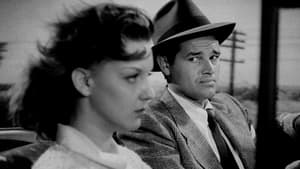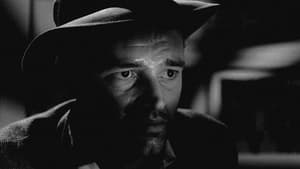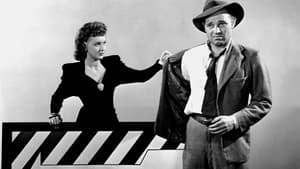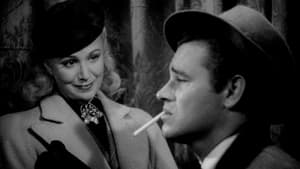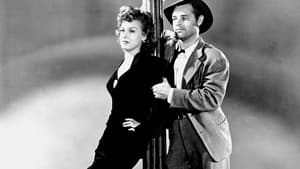Contact: [email protected]
Video Sources 0 Views
- Watch trailer
- Detour

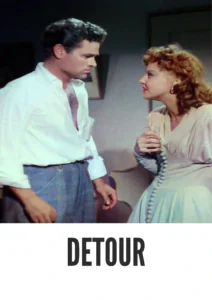
Synopsis
Table of Contents
ToggleReview: Detour (1945) – A Bleak and Gripping Tale of Fate

Introduction
Detour, released in 1945, is a quintessential example of film noir directed by Edgar G. Ulmer. Renowned for its bleak atmosphere, fatalistic narrative, and minimalist production, this low-budget gem continues to captivate audiences with its raw portrayal of human desperation and moral decay. In this review, we’ll delve into the dark and haunting world of Detour and its enduring influence on the film noir genre.
Check The Full Colorized Movies List
Check Our Colorized Movies Trailer Channel
Understanding Detour (1945): Director, Cast, and Genre
Directed by Edgar G. Ulmer, Detour is a masterclass in minimalist filmmaking that features a small ensemble cast led by Tom Neal and Ann Savage. The film belongs to the film noir genre, known for its shadowy visuals, morally ambiguous characters, and fatalistic worldview.
Exploring the World of Detour (1945): Plot and Characters
Detour tells the story of Al Roberts, a down-on-his-luck pianist hitchhiking his way to Hollywood to reunite with his girlfriend. Along the way, he encounters Vera, a manipulative femme fatale who draws him into a web of deceit and murder. As their fates become increasingly entwined, Al finds himself trapped in a downward spiral of desperation and despair from which there may be no escape.
The Art of Film Colorization
While Detour was originally filmed in black and white, its early colorized version adds a new layer of depth to its atmospheric visuals. The colorization process enhances the film’s stark cinematography and captures the emotional intensity of its characters with striking clarity.
Early Colored Films: A Brief History
The history of early colored films is marked by innovation and experimentation as filmmakers sought to enhance the visual appeal of their movies. From hand-tinted frames to pioneering technicolor processes, the evolution of colorization techniques transformed the cinematic landscape, offering audiences a new way to experience the darkness and intensity of film noir.
Detour (1945) and Its Early Colored Version
The decision to release Detour in a colorized format was made with the intention of immersing audiences in the stark beauty of its cinematography and enhancing the film’s emotional impact. While some purists may prefer the original black and white version, the early colorized edition of Detour adds a new layer of depth to its atmospheric visuals and captures the emotional intensity of its characters with breathtaking clarity.
The Debate Over Film Colorization
The debate over film colorization continues to divide audiences and industry professionals alike. While some argue that colorization breathes new life into classic films and makes them more accessible to modern audiences, others maintain that it compromises the artistic integrity of the original work. As technology advances and filmmaking techniques evolve, the debate over colorization remains a topic of ongoing discussion within the film community.
Examining Detour (1945) as an Early Colored Film
Viewing Detour in its early colorized iteration offers audiences a fresh perspective on its stark beauty and emotional intensity. The colorization process enhances the film’s atmospheric cinematography and captures the desperation and despair of its characters with stunning clarity. As viewers are drawn into the dark and haunting world of Al Roberts and Vera, they are treated to a visual feast that immerses them in the fatalistic worldview of film noir.
Influence and Legacy: Detour (1945)’s Impact on Cinema
Detour is widely regarded as a landmark of the film noir genre that continues to influence filmmakers and inspire new generations of cinephiles. Its minimalist production, raw emotional intensity, and fatalistic worldview have left an indelible mark on cinema, shaping the way filmmakers approach storytelling and visual style to this day.
Director’s Cinematic Legacy: Beyond Detour (1945)
Edgar G. Ulmer’s directorial legacy extends far beyond Detour, encompassing a diverse body of work that includes acclaimed films such as The Black Cat and Bluebeard. As a master of low-budget filmmaking, Ulmer was known for his ability to create atmospheric and emotionally resonant films with limited resources. Detour stands as a testament to his talent and creativity, solidifying his reputation as one of the great auteurs of classic Hollywood cinema.
Themes Explored in Detour (1945)
At its core, Detour explores themes of fate, desperation, and moral ambiguity in the unforgiving world of film noir. Through its minimalist production and emotionally charged performances, the film offers a raw and unflinching portrayal of human nature, challenging viewers to confront their own beliefs about right and wrong as they navigate the treacherous road of fate.
Reception and Controversy Surrounding Detour (1945)
Upon its release, Detour received mixed reviews from critics but quickly gained a cult following for its raw emotional intensity and stark portrayal of human desperation. While the decision to release the film in a colorized format sparked debate among purists, its enduring popularity has cemented its status as a timeless classic of the film noir genre.
Where to Watch Detour (1945) Online
For those eager to experience Detour for themselves, the film is readily available on popular streaming platforms such as Amazon Prime Video, Google Play Movies, and iTunes. Whether viewed in its original black and white format or its early colorized iteration, Detour offers a cinematic experience that is both stark and visually stunning.
FAQs About Detour (1945)
1. Is Detour based on a true story?
No, Detour is a fictional film that explores the bleak and fatalistic world of film noir through the eyes of its protagonist, Al Roberts. While the film’s storyline may draw inspiration from real-life events, its characters and plot are works of fiction.
2. Who starred in Detour?
Detour stars Tom Neal in the role of Al Roberts, a down-on-his-luck pianist who becomes embroiled in a web of deceit and murder. He is supported by Ann Savage, who delivers a memorable performance as Vera, the manipulative femme fatale who ensnares him in her deadly schemes.
3. What is the central message of Detour?
At its core, Detour explores the idea of fate and the consequences of our actions in shaping our destinies. Through its stark production and emotionally charged performances, the film offers a raw and unflinching portrayal of human nature, challenging viewers to confront their own beliefs about right and wrong as they navigate the treacherous road of fate.
4. Why was Detour released in a colorized format?
The decision to release Detour in a colorized format was made with the intention of immersing audiences in the stark beauty of its cinematography and enhancing the film’s emotional impact. While some purists may prefer the original black and white version, the early colorized edition of Detour adds a new layer of depth to its atmospheric visuals and captures the emotional intensity of its characters with breathtaking clarity.
5. What is the legacy of Detour?
Detour is widely regarded as a landmark of the film noir genre that continues to influence filmmakers and inspire new generations of cinephiles. Its minimalist production, raw emotional intensity, and fatalistic worldview have left an indelible mark on cinema, shaping the way filmmakers approach storytelling and visual style to this day.
6. Are there any sequels or remakes of Detour?
No, there have been no official sequels or remakes of Detour. However, the film’s enduring popularity has inspired countless reinterpretations and homages in various media. Nonetheless, none have captured the raw emotional intensity and stark beauty of the original 1945 classic.
7. Where can I watch Detour online?
For those eager to experience Detour for themselves, the film is readily available on popular streaming platforms such as Amazon Prime Video, Google Play Movies, and iTunes. Whether viewed in its original black and white format or its early colorized iteration, Detour offers a cinematic experience that is both stark and visually stunning.
Conclusion
In conclusion, Detour (1945) stands as a bleak and gripping masterpiece of the film noir genre that continues to captivate audiences with its raw emotional intensity, stark production, and fatalistic worldview. Whether viewed in its original black and white format or its early colorized iteration, Edgar G. Ulmer’s insightful direction and the powerful performances of the cast offer a cinematic experience that is both haunting and visually stunning. As viewers are drawn into the dark and desperate world of Al Roberts and Vera, they are treated to a visceral journey that challenges their beliefs about fate, morality, and the human condition. Detour remains a timeless classic that continues to enthrall and inspire audiences around the world.
